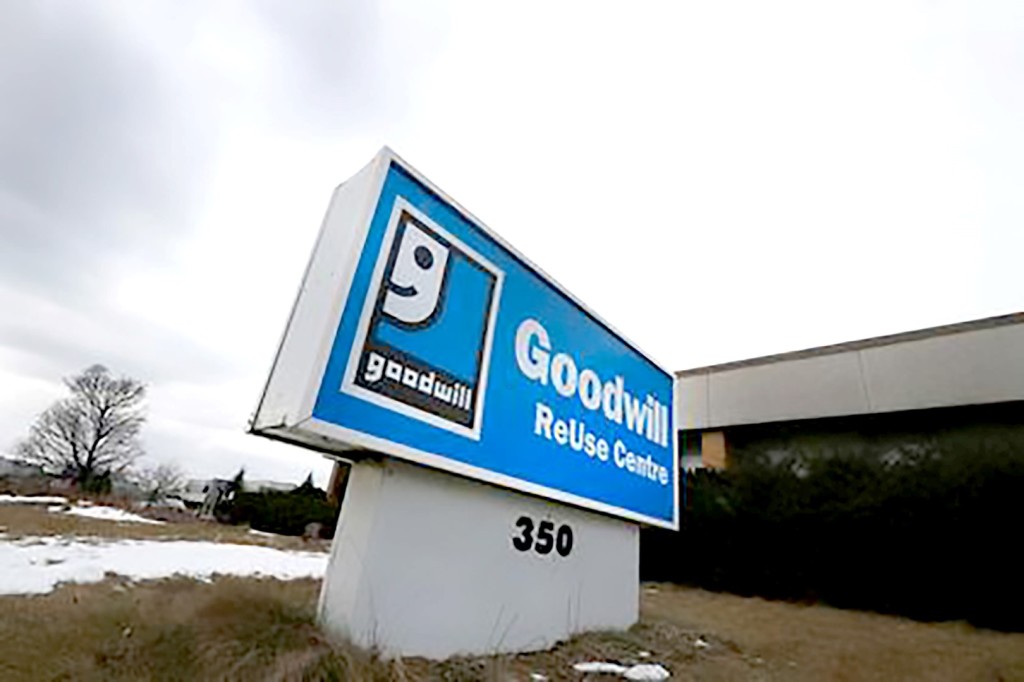The continued downfall of a charitable empire

Having to live paycheck-to-paycheck is a harsh reality for many, and one of the scariest thoughts for a low-income worker is arriving to your job and seeing that it no longer exists. This happened on 17 January 2016 to the workers at Goodwill Toronto, when it closed sixteen stores and ten donation centres in the GTA, leaving 430 front line employees jobless with no notice. The Canadian Airport Workers Union, who represents the workers, said that giving the employees no notice was a violation of their contract. That Goodwill’s policy is to hire marginalized groups who normally struggle to find employment—disabled, veterans, and individuals with criminal records—makes the unexpected layoffs seem that much harsher.
Ostensibly, the reason for closing the stores was a cash-flow crisis, due to slow sales and rising rent. One of the shuttered stores had a handwritten sign on the door saying “unforeseen circumstances.” While no one is arguing that this certainly was a surprise to the workers left in a desperate situation, looking at the records of Goodwill in Toronto shows a history of financial mismanagement that was anything but unforeseen.
The first inkling of a problem at Goodwill occurred in 2005, when the charity was forced to sell its flagship store on Jarvis street that it had occupied for seventy years. Although the company made fourteen million dollars on that sale, the funds quickly disappeared and the corporation’s lender refused to extend their line of credit the following year. Around the same time, an attempt was made by the former CEO, Ken Connelly, to have a profitable US branch of the organization come to Toronto to train workers and teach their best practices, but when the 2008 financial crisis hit, the contract was cancelled, leaving the Toronto stores with yet another bill and little to show for it.
After Connelly resigned in 2011, current CEO Keiko Nakamura was hired. It was, to say the least, an odd choice for the most visible executive in the Toronto region of Goodwill. The very same year, Nakamura had been forcefully ousted as the CEO of Toronto Community Housing Corporation (TCHC)—the organization that manages the operations of social housing for low-to-moderate income households—after an outside audit showed evidence of inappropriate spending and poor practices, including almost $2,000 spent on manicures and $93,500 on two staff parties. This, coupled with the fact Nakamura had no retail experience, leads one to wonder why exactly she was chosen for the position of CEO. Although the union has called for her resignation from Goodwill, she has yet to step down, although the board of directors (whom, may I add, also had a severe lack of retail experience) have all left their posts after this scandal.
Outside of Toronto, Goodwill has come under criticism for a number of reasons, one of which is exorbitant executive compensation. Nakamura makes approximately $230,000CDN a year, which is actually fairly modest compared to what some of the top US executives make. The current President and CEO of the entire organization, Jim Gibbons, has a reported salary of $725,000USD, and most regional CEOs in the US seem to average somewhere around $300,000-$400,000USD a year. The company has also been under fire for taking advantage of a wage loophole that allows corporations to pay workers with disabilities below minimum wage. Currently, over seven thousand employees fall into this “Special Wage Certification.” The Fair Labour Standards Act makes this legal in the US, with the company relying on frequent performance evaluations (at least one every six months) to determine just how low the salary can drop. This relic of Depression-era politics has been attempted to be repealed a number of times in Congress, but unsurprisingly, keeps getting stalled at various levels.
There is a small amount of less depressing news to report on this issue. Baskets of food and necessities were handed out to all of the laid-off employees that needed them through donations by Second Harvest. And last week, Nakamura announced that employees would receive back pay and their records would be sent out immediately, to expedite the EI process. The union has reported that a number of investors have already reached out to discuss a possible operations takeover. Finally, Ontario Premier Kathleen Wynne is expected to release a public statement about the events.
If you’d like to know more about the charities you are considering donating to, there are a number of websites that break down the numbers and rank the efficiency of charities, including an excellent list of Canada’s top-rated charities on www.moneysense.ca.
